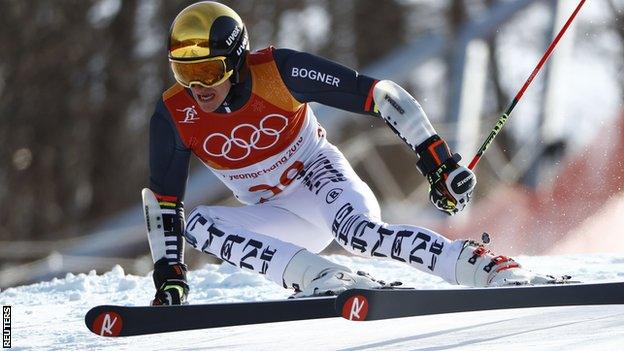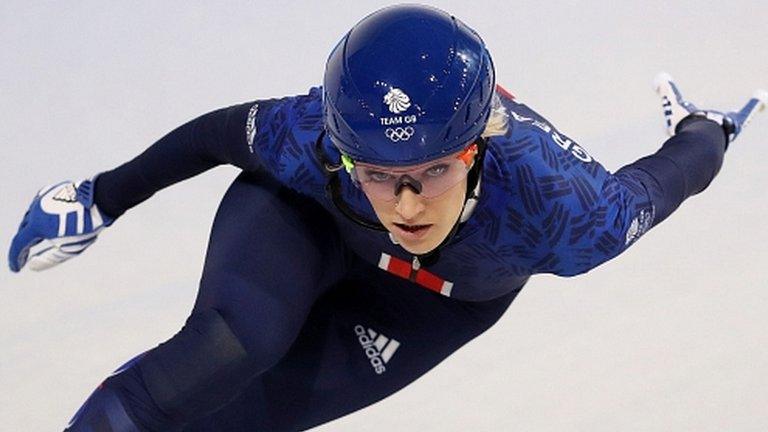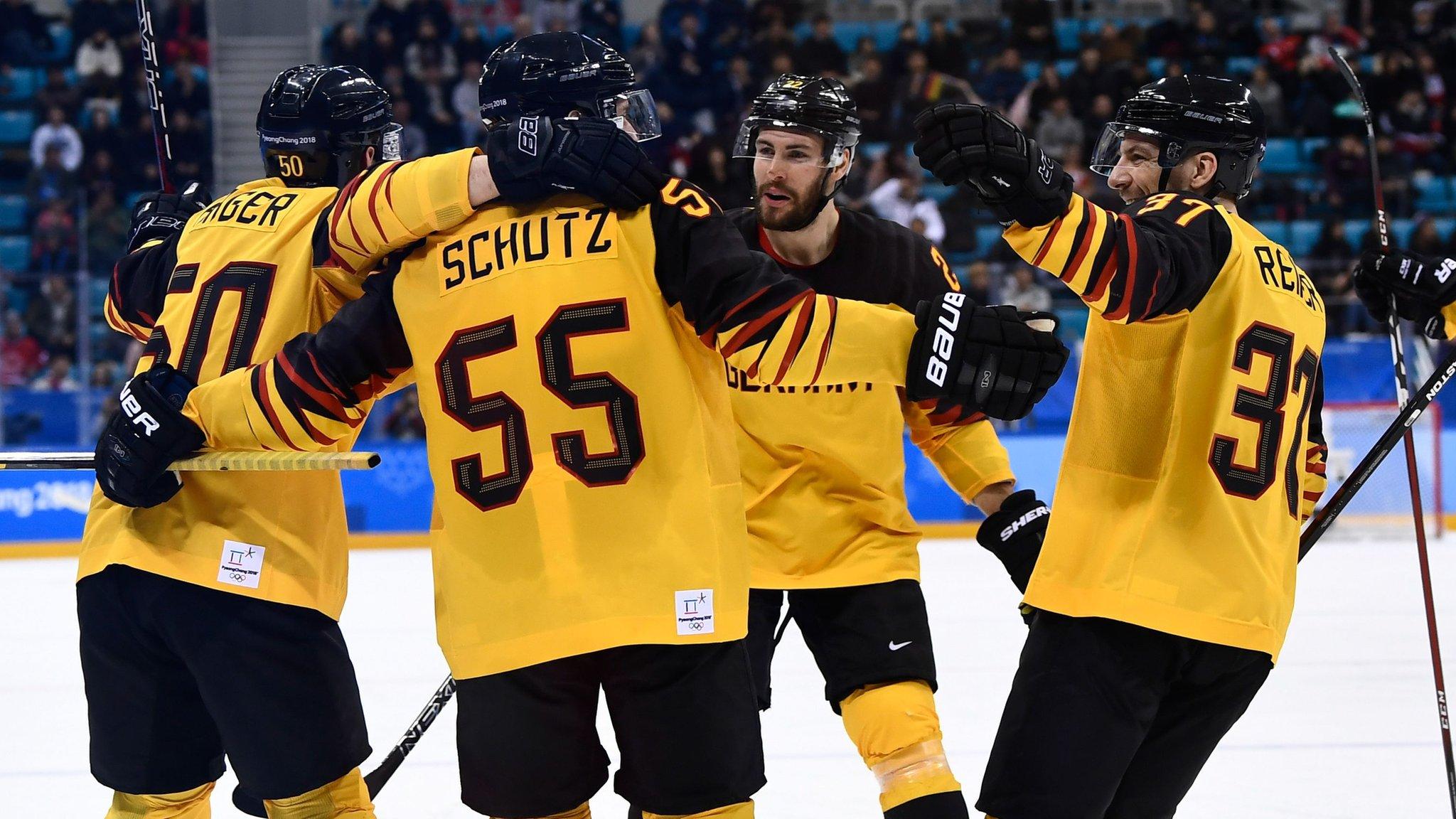Winter Olympics: Is non-alcoholic beer behind Germany's medal success?
- Published

Alpine skier Linus Strasser is among the German athletes to enjoy a non-alcoholic beer
XXIII Olympic Winter Games |
|---|
Venue: Pyeongchang, South Korea Dates: 9-25 February |
Coverage: Watch live on BBC TV, Red Button, Connected TVs, BBC Sport website and mobile app. Full coverage times |
Ever fancied a cold beer after a hard day at work? How about while competing at the Winter Olympics?
German athletes have been drinking non-alcoholic beer to help aid recovery and boost performance in Pyeongchang.
And brewery Krombacher has supplied 3,500 litres to the athletes' village.
"It tastes good and it's good for the body," said skier Linus Strasser. "Alcohol-free wheat beer is extremely healthy. It's isotonic. That's why it's good for us sports guys."
Johannes Scherr is the doctor for the German Olympic ski team and says a majority of his athletes drink non-alcoholic beer during training.
Following a study conducted on marathon runners in Munich in 2009, Scherr found non-alcoholic beer reduced inflammation and respiratory infections, helping athletes to recover quicker and train harder.
"This was pretty surprising to us," he told the New York Times,, external explaining that German breweries often market it as an alternative to sugary sports drinks.
Holger Eichele, chief executive of the German Brewers' Association, added: "After that, we really had the proof: It's really healthy and not only a marketing gag."
Germany have so far won 20 medals in Pyeongchang, putting them second in the medal table, with biathlon silver medallist Simon Schempp among the athletes to enjoy a non-alcoholic beer.
"It's a really good drink directly after training or after competition," he said.
However, Krombacher also shipped 11,000 litres of regular beer to South Korea.
"Sometimes an alcoholic beer can also be good," added Strasser.
- Published22 February 2018

- Published24 February 2018
